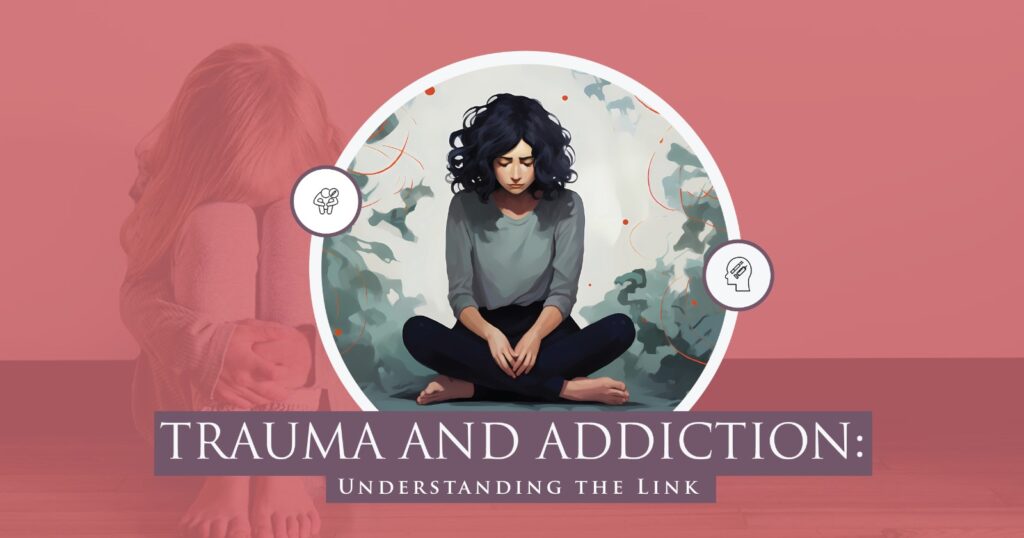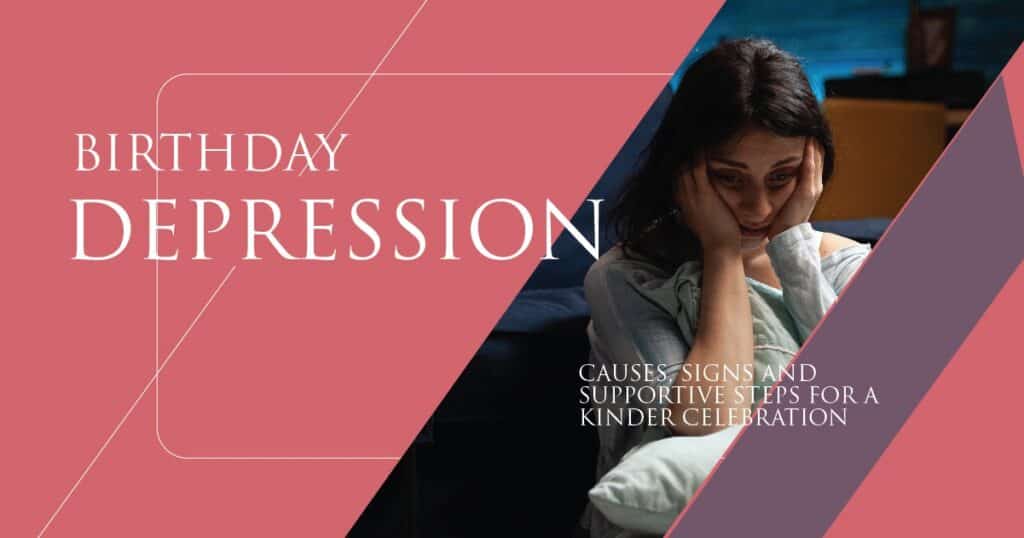The relationship between addiction and trauma must be understood by someone wanting to know why some people turn to substances or other addictive behaviors after trauma. Trauma results not only from physical abuse but also from emotional neglect or simply witnessing a traumatic event. Trauma profoundly impacts the emotional and psychological state of a person. Over time, untreated trauma may cause addiction as people look for ways to cope.
This article will investigate the link between psychological trauma and addiction, the different types of trauma-causing types of addiction, the signs and symptoms of both, and treatments that are proven effective to remedy such combined issues. This article will also show how centers can provide specialized services for trauma and addiction patients.
What Is Trauma?
Understand first what trauma is before moving on to the correlation between trauma and addiction. Trauma is emotional, psychological, and bodily injury that comes from events or situations beyond the person’s ability to cope. Such events can have profound and permanent scars affecting an individual’s thoughts, behavior, and even relationships. This is how an event happens. It all leads to the birth of trauma.
Sometimes, that event can be a single incident or simply accumulate as a series of events over time. The effects of trauma are generally psychological and will produce a symptomatology that is not just psychological but also physical, by untreated trauma becoming something more complicated, like addiction, and at the same time being symptomatic of acute trauma.
How Trauma Affects the Brain
The brain is highly influenced by trauma. Whatever traumatic event occurs, the brain’s first reaction is to stir the body’s fight-or-flight response and release stress hormones like cortisol and adrenaline. These hormones help manage any immediate threat but can also mess up brain functions if the release continues for a long time.
Trauma reconfigures the brain both structurally and chemically, particularly affecting those parts that deal with emotion regulation, memory, and decision-making processes. Such structures include the hippocampus, which processes memory but then becomes flooded, resulting in a poor processing stream for traumatic events, which can lead to flashbacks, intrusive thoughts, and extreme emotional reactions.
When it comes to addiction and trauma, the brain’s reward system is affected. The brain is then over-sensitive to stress and more bright-eyed when it comes to any desire to indulge in a substance or activity that brings temporary relief from the pain of trauma.
These could be the beginning stages of addiction, turning to certain substances to numb the unbearable emotional pain, dependency on more substances, and more trauma.
Connection Between Trauma and Addiction
The injury does not have a direct correlation with addiction, but it is likely that. People who may have once experienced significant trauma or an enormous event in their life will end up using drugs such as alcohol, other intoxicating substances, or engage in other addictive behavior as a means to self-medicate. Often, this results in an addict and traumatic cycle that is sometimes impossible to overcome without any intervention.
The emotional pain that trauma causes is one of the leading causes of addiction. Trauma leads one to a space of loneliness and anxiety and often leaves them with a sense of mistrust concerning the outside world.
Under these conditions, the drug tends to provide temporary escape hatches for weighty emotions. Over time, this leads the body and brain to develop tolerance, so it tends to take much longer for the individual to get the same level of numbness.
San Jose Mental Health
Types of Trauma
Various types of trauma determine an individual’s addiction along with trauma. Each trauma has its unique effects on the person, as well as the response towards that trauma. Learning about the different types of trauma is essential in understanding how such traumas can lead to addiction.

Physical Assault
Whether it is robbery, a kid fight, or any other form of aggressive physical confrontation, it is a traumatic event, leaving deep emotional scars. The effects of physical assaults often result in long-term anxiety, depression, and post-traumatic stress disorder (PTSD), prompting individuals to consider self-soothing substances.
Sexual Assault
Sexual Assault is one of the most damaging types of trauma. The survivors find it difficult to overcome the emotions of shame, guilt, and feeling deprived of power and control. The trauma can cause an individual to experience feelings of alienation and severe psychological distress, which might lead them to use drugs to numb or forget the emotional pain and troubling memories of the event.
Domestic Violence
The place where the occurrence of domestic violence turns the home into a corrupted environment stays in a fearful and insecure state. Exposure and experience of violence within a household lead to emotional and psychological damage that often causes one to resort to addiction, through which they try to numb the pain and confusion.
Emotional Abuse
Quite hard to spot, but more potent than physical violence is emotional violence. It has a significant impact on torturing a person’s mental health. Harsh verbal attacks, manipulation, and gaslighting pose the effects by chipping away at self-worth and bringing forth a sense of helplessness and low esteem. However, addiction would emerge as either self-medication or as a way of trying to exert control over these powerful emotions.
Parental Neglect
Neglect from parents, especially in childhood stages, can be a lifelong result. A child who has grown up in an emotionally, physically, or psychologically deprived environment tends to harbor deep feelings of abandonment. Often, these two are also intertwined, for children who have been neglected may later grow up into addiction, and they turn to substances for emotional safety or as an escape from feeble feelings of inadequacy and loneliness.
Bullying
It is said bullying has long-lasting, devastating effects either in childhood or in adulthood. The bullied may feel ashamed, anxious, and depressed. In most cases, these emotional scars lead one into substance abuse or risky behaviors, which may then cause further drug addiction.
Natural Disasters
Such disasters are deeply traumatic to survivors. Earthquakes and hurricanes displace more than thousands from houses, and life and property are suddenly lost in floods. All these happenings are likely to cause psychological trauma, and some of the victims may start seeking comfort in substances to escape their distress.
Accidents
Such occurrences as accidents in vehicles, incidents at work, or other physical trauma have a way of incurring both physical and emotional trauma. The injury’s chronic pain often leads to addiction, where the person tries to numb the associated pain and emotional burden through drugs or alcohol.
Illness
Long-standing illness or incapacity can also harbor psychological trauma. Uncertainty within chronic illness develops depression, anxiety, and helplessness feelings. Some may weigh addiction and trauma to substances as coping with the pain or emotional travel concerning the condition.
How Different Types of Trauma Link to Addiction
Whatever you may call it, trauma returns with scars that last a long time on the human psyche and can act as a catalyst for addictions. Ascertain how these varied trauma types could lead to addictive behavior may also really help pinpoint at-risk individuals and potential candidates for relevant interventions.
Adverse Childhood Experiences and Addiction
Adverse Childhood Experiences (ACEs) are much more critical indicators of addiction as well as childhood trauma. Research has confirmed that children who experience abuse, neglect, or household dysfunction tend to develop substance use disorders later in adulthood.

Emotional scarring arising out of ACEs also ensues when using some substance for coping. However, it may take many years for this person to realize the reasons behind their behavior.
PTSD and Addiction
A close association between PTSD and addiction has been observed, especially among those who have experienced combat, sexual assault, or other traumatic events. It manifests in severe emotional disturbance, flashbacks, nightmares, and hypervigilance. Most PTSD patients drown themselves in drugs or alcohol to numb their traumatic memories, thereby ending up with a dual diagnosis of addiction and trauma.
Physical Trauma and Addiction
Physical trauma through injury or accident leads to chronic pain, which in turn supports addiction. Pain management is more often than not through medication. Some people may depend on such therapy to keep physical discomfort at bay. With time, the dependency can be so high that it is termed a real addiction.
Emotional Trauma and Addiction
To overcome this emotional suffering, many people are addicted. Emotional trauma could be in the form of abandonment, rejection, or betrayal. Such trauma usually leads to low self-worth and not trusting others, making one engage in self-destructive habits and substance abuse.
San Jose Mental Health
Signs and Symptoms of Trauma
Recognizing symptoms of trauma is critical for early management among individuals who might have suffered it. Formerly traumatized individuals do not exhibit apparent signs. Usually, most present behavioral and physical indicators are to be watched for.
Physical Signs
For some people, the result of trauma does not remain as an emotional state. It becomes physical, such as chronic pain, the inability to sleep, fatigue, or headaches. Trauma can impede the body’s ability to heal itself and keep a balanced state-for example, fibromyalgia or chronic fatigue syndrome.
Behavioral Signs
Features of the act of traumatization include isolation, emotional numbness, frantic irritation, and an inability to concentrate. People are likely to involve themselves in reckless acts such as abusing alcohol, engaging in irresponsible sexual activities, and becoming abusive.
Signs and Symptoms of Addiction
Most addicts show both physical and behavioral symptoms. Some physical symptoms include weight loss or gain, lack of cleanliness of his body, and sickness very often. Their behavioral changes may be secrecy, lying, and failure to take responsibility.
Treating Trauma and Addiction
Comprehensive, integrated treatment is mainly used for treating trauma and addictions. The best outcomes result when both issues are addressed together so individuals can heal on all levels.
Dual Diagnosis
This signifies the dual diagnosis conferred on an individual who has both a mental health disorder, like trauma and a substance use disorder. It is imperative that both be integrated into the treatment since, without treatment of the trauma, the addiction will worsen, while without treatment of the addiction. Recovery from the trauma becomes difficult.
Therapy
The essential method of coping with trauma and addiction is therapy. For example, cognitive-behavioral therapy teaches individuals to identify negative thinking patterns that keep them addicted and replace these with healthier coping mechanisms.
Other trauma-focused therapies, such as Eye Movement Desensitization and Reprocessing (EMDR), aid the patient in processing the memories they have of the trauma and recovering from them.
EMDR
Eye Movement Desensitization and Reprocessing presents itself as an outstanding therapy available for reprocessing aberrant memories by affecting the emotional intensity the subject attaches to those memories. This has shown intense efficacy in several patients going through addiction and trauma, particularly patients who have PTSD.
Detox
Detoxification is the first thing that a person has to brave to be able to get free from addiction. Detox is for the person to prepare for the removal of toxin accumulation in the body from the substance. Supervised detoxification is primarily care and comfort during great detoxification therapy, with attention placed on the patient’s safety and effectiveness.
Inpatient Treatment
Such patients are treated at inpatient rehabilitation centers. They are introduced into a very organized environment, which provides conditions for individuals to concentrate on their recovery, giving therapy, medical support, and holistic treatment specific to the individual needs of that patient.
Take the First Step Towards Healing
Whether you’re struggling with trauma or someone you care about struggles with trauma or addiction, it’s never too late to get help. The first step for many comes in recognizing that such help is possible.
Call To Action:
At our trauma and addiction center, we understand that trauma and addiction go hand in hand. We provide those precious early stages of recovery in a safe and supportive environment. Call us today to start your healing process.
San Jose Mental Health
FAQs
- How does trauma lead to addiction?
Adverse events and psychological effects from trauma can lead to emotional distress and psychological struggles. People may opt for substances or addictive behaviors to cope with their emotional distress. The impact of those substances may numb or provide temporary relief from overwhelming emotions, resulting in addiction and sustaining or aggravating the cycle of trauma.
- Can childhood trauma lead to addiction later in life?
There is a close relationship between addiction and childhood trauma. ACEs, or Adverse Childhood Experiences, like neglect or abuse, predispose to substance use disorders in later life as an adult. The emotional pain caused during childhood often leads individuals to self-medicate using illicit substances.
- What is a dual diagnosis?
The condition known as co-occurring disorders exists when a person is diagnosed with a mental health disorder, such as post-traumatic stress disorder or anxiety stemming from trauma, and a substance use disorder. Treatment of both conditions is necessary to recover effectively, since they are often connected.
- How can EMDR therapy help with trauma and addiction?
Therapy that employs EMDR – Eye Movement Desensitization and Reprocessing – assists individuals in solving and reworking memories that they find traumatic. It has also been effective in relieving the emotional trauma of life so that the individual can deal more efficiently with addiction and trauma in general.
- How can San José Mental Health Center can help?
At San José Mental Health Center, upon entry, one is assisted through a pathway to healing with the help of trauma treatment and addiction treatment. In addition, we feature dual diagnosis treatment, therapy, detox programs, and residential programs that simultaneously focus on recovery from all mental health conditions.








